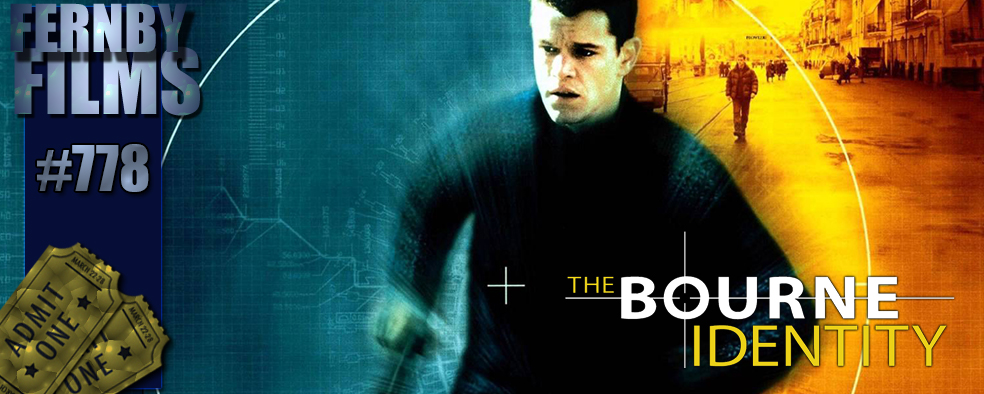Movie Review – Bourne Identity, The (2002)
Energetic spy-thriller is helmed with precision and realism by Doug Liman, led by solid performances from Damon and Potente, set up this franchise with just enough mystery, subversive spy hijinks and cloak-n-dagger machinations to ensure nearly endless sequels would arrive. Looking back, the original film does seem a little tired by comparison to Paul Greengrass’s visceral sequel films, but there’s enough heart and audience-snagging cleverness to maintain its status as the iconic benchmark to which all the Bourne films strive.
– Summary –
Director : Doug Liman
Year Of Release : 2002
Principal Cast : Matt Damon, Franke Potente, Chris Cooper, Brian Cox, Clive Owen, Adewale Akinnuoye-Agbaje, Gabrien Mann, Julia Styles, Tim Dutton, Walter Scoggins, Josh Hamilton.
Approx Running Time : 118 Minutes
Synopsis: After being rescued from the ocean by a passing fishing vessel, a man with amnesia discovers a dark secret about his life and what he can do. Along his journey of discovery, he is accompanied by a young woman who wants a better life for herself.
What we think : Energetic spy-thriller is helmed with precision and realism by Doug Liman, led by solid performances from Damon and Potente, set up this franchise with just enough mystery, subversive spy hijinks and cloak-n-dagger machinations to ensure nearly endless sequels would arrive. Looking back, the original film does seem a little tired by comparison to Paul Greengrass’s visceral sequel films, but there’s enough heart and audience-snagging cleverness to maintain its status as the iconic benchmark to which all the Bourne films strive.
**********************
Back to the Bourne Beginning.
The wonderful thing about the original Bourne trilogy of films – Identity, Supremacy and Ultimatum (the latter two directed by Paul Greengrass) – is just how well they all wrap into each other. All three films form a perfect circle of character, action and plot; no moreso noted than the reprisal of a line from Identity which would come back in Ultimatum’s finale, “Look at what they make you give”. Wether by design from the outset, or simply clever script-wrangling by Tony Gilroy (co-plotter on the three originals, before taking the directorial reins for the rather poor Bourne Legacy), The Bourne Identity sets off a chain of events that cover not only this single film, but continue to be felt three films later. Whereas most sequels tend to spin off into tangents and lesser-story mediocrity, the Bourne trilogy is well noted for remaining as gripping in the final frame of Ultimatum as it is in the opening of Identity. That’s an amazing feat of production, writing, directing and acting, although considering the material is drawn from the late – great – Robert Ludlum’s novels, perhaps not entirely surprising. Looking back at The Bourne Identity, the film which saw Matt Damon cast as a then-unlikely action hero (hard to imagine otherwise now, right?) it’s easy to see how the overarching plot works, weaves and winds its way to the ultimate conclusion, while setting up sequel material with just enough hints and tidbits to tantalize audiences with a possible “wider world” story; The Bourne Identity remains a gripping, well made action thriller that provides just the right balance of character, action and story to not only whet the appetite, sate it, and then have you asking for more.
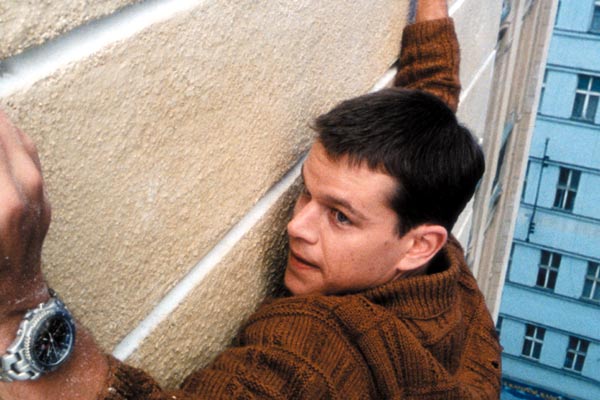
Waking up after being rescued by a fishing vessel in the Mediterranean, a man (Matt Damon) with amnesia finds he has abilities that no normal person should have – he can speak multiple languages, is good with weapons and hand-to-hand combat, and has knowledge of survival and training in espionage. After following a series of clues as to his identity, the man discovers his name, Jason Bourne, via a locked box at a Swiss bank. Meanwhile, at CIA headquarters in Langley, Virginia, a team of analysts and operatives, led by Conklin (Chris Cooper) and overseen by Ward Abbot (Brian Cox), begin tracking Bourne down; it turns out Bourne is some kind of super-secret assassin, sent to kill an exiled Nigerian dictator (Adewale Akinnuoye-Agbaje). As Bourne pieces together the clues, he is aided by German native Maria (Franka Potente), with the two forming a bond as they become more involved in Bourne’s mission. Several other assassins are sent by the CIA to kill Bourne, including The Professor (Clive Owen), who tracks the pair to a friend’s home in the country. With the CIA moving in, Bourne must protect Maria and make sure he himself is no longer considered a threat, and therefore must confront Conklin in a showdown that will decide his fate.
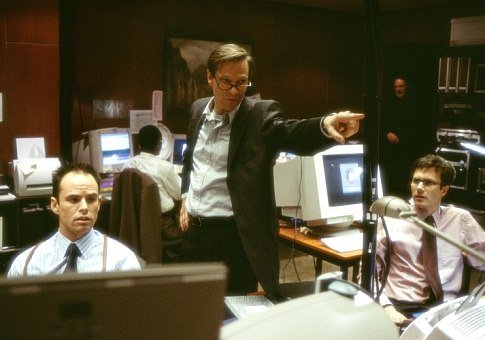
There are two reasons (IMO) for The Bourne Identity’s success. First, it never takes itself for granted. The film feels raw and grounded, almost documentary-like at times, and makes every moment count even when nothing is apparently happening. It knows what it needs to do, this film, and does it with precision and simplicity. There’s no ostentation. Secondly, the cast are all in top flight, from the nameless grunts in the background, to lead actors Matt Damon, Franka Potente and Chris Cooper, all three of whom have an unaffected natural screen presence here, wholly un-Hollywood. Potente, best known to Western audiences prior to Identity as the female lead in Tom Tykwer’s Run Lola Run, gives Marie a wounded, yet strong personality, as someone who may not have had the best of luck in life but who is quite happy with her lot, as long as she has a bed and food. She’s sexy, sweet and a nice foil for Damon’s Bourne, never taking his crap even though they both know they can simply walk away from each other. Matt Damon delivers a square-jawed, confused yet driven Jason Bourne, although apparently not everyone’s first choice for the part (a lot like Tom Cruise in Jack Reacher), yet I think he pulls off the role well. Damon’s physicality and commanding screen presence, coupled with a raw intensity and wonderful chemistry with his leading lady, ensure his Bourne is an accomplished variant of the character, and one we enjoy watching uncover his own past.
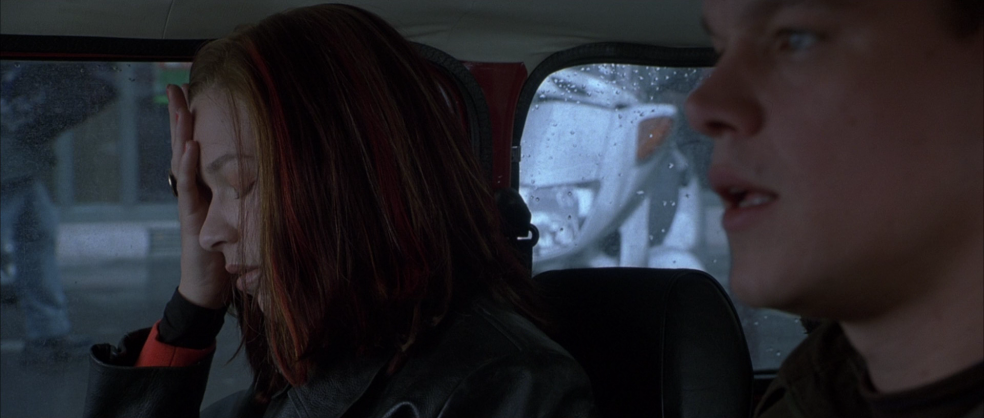
Oscar winner Chris Cooper snarls and growls his way through the role of Conklin, the CIA agent tasked with bringing in the wayward Borne. Cooper leads the small group of analysts and data-pushers in tracking Bourne across Europe, and along with Paris-based operative Parsons (a small role to Julia Stiles, who would also appear in the sequels) they provide the momentum for the film’s chase-n-go narrative. Without them hot on Bourne’s heels, the film would simply crash to a halt, and while the roles aren’t especially deep or nuanced (I mean, c’mon, they’re CIA operatives, right, so why give them any background at all?) they don’t demand much in the way of acceptance by the audience. Brian Cox appears in a relatively small role, as CIA deputy Ward Abbot (again, in a role which comes full circle in The Bourne Supremacy), and it’s he who provides some small hints that Bourne, and the associated “Treadstone” MacGuffin, might be part of a larger story.
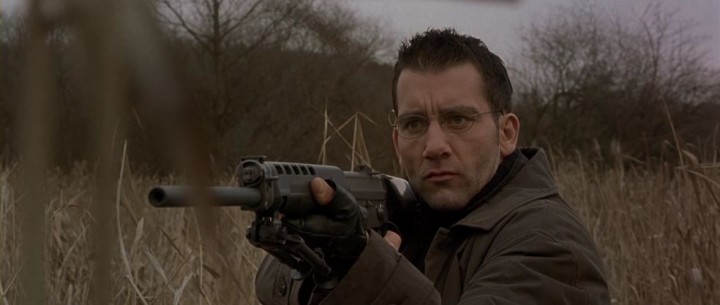
A film like this doesn’t achieve success without at least some decent action sequences, and Identity has its share. Bourne’s escape of the US Embassy in Germany is taut and gripping, as is the inevitable car-chase through the streets of Paris (although this sequence is thoroughly outdone by Greengrass’ Supremacy effort), and a few moments of hand-to-hand combat Bourne performs to survive. Liman shoots these sequences nearly entirely hand-held, although thankfully never once going for that shaky-cam, uber-closeup style Greengrass would go on to use in the two sequels. He shows restraint with his kinetic style, allowing the action to speak for itself rather than “enhance” it through camera tricks. As mentioned earlier, there’s a pseudo documentary feel to this one, as if the entire film is shot “for real” live, and it makes the whole thing a lot more tense than it could have been otherwise. Kudos too for DP Oliver Wood for lensing this film so superbly, making the variety of European locations look amazing – although somewhat downbeat.
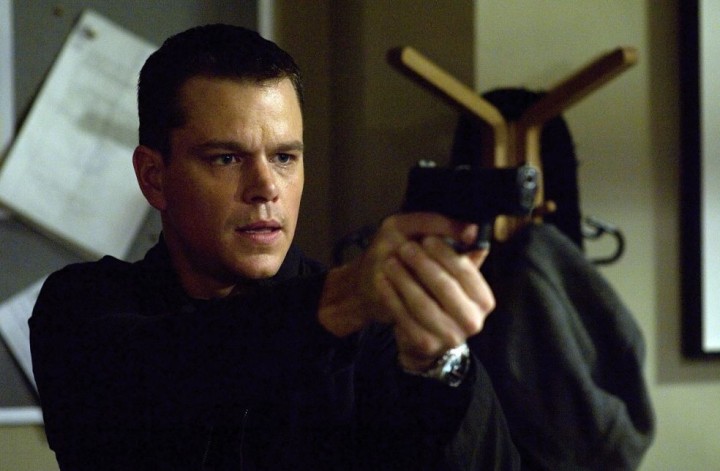
The Bourne Identity is a great franchise starter. It delivers decent action, some good direction and more than competent casting and acting from those on the screen. The underground “big picture” narrative throughout hints at a larger world, enticing audiences to peel back the subtext, and the film ends with plenty of room to move for possible sequels, without feeling like it needs to be sequelized. There’s plenty of style, class and spy-thriller antics at play here; it’s a freshly minted Bourne out to play in a world before Daniel Craig’s James Bond era, and it’s great.


